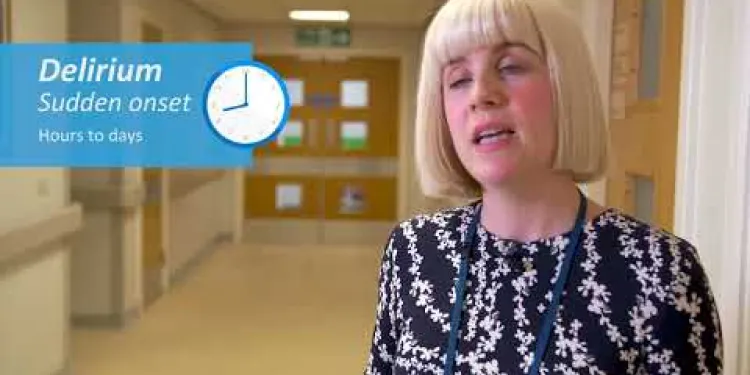
Find A Professional
More Items From Ergsy search
-

What is a dementia-friendly community?
Relevance: 100%
-

How does dementia progress over time?
Relevance: 83%
-

Can dementia affect younger people?
Relevance: 81%
-

Is there a cure for dementia?
Relevance: 76%
-

Dementia by Dr Alex Kakoullis, Coventry and Warwickshire Partnership NHS Trust
Relevance: 76%
-

Early onset dementia | NHS
Relevance: 76%
-

Are there any support groups for people with dementia in the UK?
Relevance: 74%
-

Living with dementia | NHS
Relevance: 66%
-

The role of care homes dedicated to caring for people living with dementia and memory loss
Relevance: 62%
-

How is dementia diagnosed?
Relevance: 57%
-

What role do carers play for those living with dementia?
Relevance: 57%
-

Getting help and support with frontotemporal dementia (FTD) (part 2/3)
Relevance: 53%
-

Dementia Care at Colten Care
Relevance: 49%
-

What is dementia?
Relevance: 47%
-

What lifestyle changes can help someone with dementia?
Relevance: 31%
-

What financial support is available for people with dementia?
Relevance: 24%
-

How can I support a loved one with dementia?
Relevance: 24%
-

What are the common symptoms of dementia?
Relevance: 24%
-

An introduction to frontotemporal dementia (FTD) (part 1/3)
Relevance: 22%
-

Bowel Cancer
Relevance: 20%
-

Fernhill Dedicated Dementia Care Home - a relatives perspective
Relevance: 19%
-

Living with changes in behaviour in frontotemporal dementia (FTD) (part 3/3)
Relevance: 16%
-

What is Delirium
Relevance: 10%
-

How common is Alzheimer's disease in the UK?
Relevance: 8%
-

Delirium
Relevance: 8%
-
How is dementia diagnosed?
Relevance: 6%
-
Can dementia affect younger people?
Relevance: 6%
-
Are there any support groups for people with dementia in the UK?
Relevance: 6%
-
What is a dementia-friendly community?
Relevance: 6%
-
Are there any support groups for people with dementia in the UK?
Relevance: 6%
-
How does dementia progress over time?
Relevance: 6%
-
How is dementia diagnosed?
Relevance: 6%
-
Can dementia affect younger people?
Relevance: 6%
-
How does dementia progress over time?
Relevance: 6%
-
What is a dementia-friendly community?
Relevance: 6%
-

How do you spot delirium
Relevance: 6%
-

What is delirium
Relevance: 6%
-

Delirium: A Patient Story at Leicester's Hospitals
Relevance: 5%
-

What is Alzheimer's disease?
Relevance: 5%
-

What are the stages of Alzheimer's disease?
Relevance: 5%
What is Dementia?
Dementia is a broad term used to describe a range of progressive neurological disorders affecting the brain. Each type of dementia affects the brain differently, which leads to varying symptoms and challenges. The condition is characterised by a decline in several cognitive functions such as memory, communication skills, reasoning, and the ability to perform everyday activities.
Types of Dementia
The most common form of dementia is Alzheimer's disease, accounting for about 60-70% of cases. Alzheimer's disease is marked by the accumulation of amyloid plaques and tau tangles in the brain, leading to cell damage and brain shrinkage. Other common types include vascular dementia, which occurs after a stroke or due to chronic damage to blood vessels supplying the brain, and Lewy body dementia, known for its unique protein deposits in brain cells.
Additionally, frontotemporal dementia affects the frontal and temporal lobes of the brain, causing changes in personality and behaviour. Each type of dementia progresses differently, and some individuals may show symptoms of more than one type, a condition known as mixed dementia.
Symptoms and Diagnosis
Symptoms of dementia can vary widely from person to person, but commonly include memory loss, difficulties with problem-solving and language, confusion, and changes in mood or behaviour. As dementia progresses, these symptoms can become more severe, making it challenging for the affected person to maintain independence.
Diagnosing dementia involves a combination of medical history evaluation, neurological exams, cognitive tests, and brain imaging. Early diagnosis is crucial as it allows for appropriate planning and management of the condition, potentially slowing its progression and improving quality of life.
Causes and Risk Factors
The exact cause of dementia is not entirely understood, but several factors are known to increase the risk of developing the condition. Age is the most significant risk factor, with the likelihood of developing dementia increasing as one ages. Genetics may also play a role, as well as lifestyle factors such as diet, physical activity, and smoking.
Some medical conditions, including hypertension, diabetes, and high cholesterol, can increase the risk of vascular damage to the brain, thereby elevating the risk for types of dementia such as vascular dementia.
Management and Support
While there is currently no cure for dementia, there are treatments available that can alleviate symptoms and improve the quality of life for those affected. Medications may be prescribed to help improve cognitive functions, manage mood changes, and support sleep.
Support from healthcare professionals, caregivers, and community support groups is essential for managing dementia. Strategies may include creating a safe and supportive environment, maintaining social engagement, and ensuring that daily routines are maintained as much as possible.
In the UK, organisations such as the Alzheimer's Society and Dementia UK provide valuable resources and support for individuals affected by dementia and their families, offering guidance, advice, and information on available treatments and care options.
What is Dementia?
Dementia is a term for problems with how the brain works. It affects people's memory, talking, and thinking. It can also make everyday activities difficult. There are different types of dementia, and each type can cause different symptoms.
Types of Dementia
The most common type of dementia is called Alzheimer's disease. It affects about 60-70% of people with dementia. Alzheimer's happens when harmful stuff builds up in the brain, damaging it. Other types of dementia include vascular dementia, which can happen after a stroke, and Lewy body dementia, which causes specific changes in the brain.
Another type is frontotemporal dementia, which affects the front and side parts of the brain, changing how people act. Sometimes, a person can have more than one type of dementia at the same time. This is called mixed dementia.
Symptoms and Diagnosis
Dementia symptoms can be different for everyone, but they usually include forgetting things, having trouble with language and solving problems, getting confused, and mood changes. These symptoms can get worse over time, making it hard for people to live independently.
Doctors can find out if someone has dementia by checking their medical history, doing brain tests, and looking at brain pictures. It's important to find out early so people can plan and get help as soon as possible.
Causes and Risk Factors
We don't know exactly what causes dementia, but we know some things can make it more likely. Getting older is the biggest risk. Family history and how a person lives, like what they eat and how active they are, can also affect the chances of getting dementia. Health issues like high blood pressure, diabetes, and high cholesterol can cause brain problems that might lead to dementia.
Management and Support
There is no cure for dementia yet, but there are treatments that can help with the symptoms. Medicines can help with memory and mood. It's also important to have support from doctors, caregivers, and community groups.
Creating a safe and friendly environment, staying social, and keeping a routine can be very helpful. In the UK, organisations like the Alzheimer's Society and Dementia UK can give guidance and support to people with dementia and their families.
Frequently Asked Questions
Useful Links
- Ergsy carfully checks the information in the videos we provide here.
- Videos shown by Youtube after a video has completed, have NOT been reviewed by ERGSY.
- To view, click the arrow in centre of video.
- Most of the videos you find here will have subtitles and/or closed captions available.
- You may need to turn these on, and choose your preferred language.
- Go to the video you'd like to watch.
- If closed captions (CC) are available, settings will be visible on the bottom right of the video player.
- To turn on Captions, click settings .
- To turn off Captions, click settings again.
More Items From Ergsy search
-

What is a dementia-friendly community?
Relevance: 100%
-

How does dementia progress over time?
Relevance: 83%
-

Can dementia affect younger people?
Relevance: 81%
-

Is there a cure for dementia?
Relevance: 76%
-

Dementia by Dr Alex Kakoullis, Coventry and Warwickshire Partnership NHS Trust
Relevance: 76%
-

Early onset dementia | NHS
Relevance: 76%
-

Are there any support groups for people with dementia in the UK?
Relevance: 74%
-

Living with dementia | NHS
Relevance: 66%
-

The role of care homes dedicated to caring for people living with dementia and memory loss
Relevance: 62%
-

How is dementia diagnosed?
Relevance: 57%
-

What role do carers play for those living with dementia?
Relevance: 57%
-

Getting help and support with frontotemporal dementia (FTD) (part 2/3)
Relevance: 53%
-

Dementia Care at Colten Care
Relevance: 49%
-

What is dementia?
Relevance: 47%
-

What lifestyle changes can help someone with dementia?
Relevance: 31%
-

What financial support is available for people with dementia?
Relevance: 24%
-

How can I support a loved one with dementia?
Relevance: 24%
-

What are the common symptoms of dementia?
Relevance: 24%
-

An introduction to frontotemporal dementia (FTD) (part 1/3)
Relevance: 22%
-

Bowel Cancer
Relevance: 20%
-

Fernhill Dedicated Dementia Care Home - a relatives perspective
Relevance: 19%
-

Living with changes in behaviour in frontotemporal dementia (FTD) (part 3/3)
Relevance: 16%
-

What is Delirium
Relevance: 10%
-

How common is Alzheimer's disease in the UK?
Relevance: 8%
-

Delirium
Relevance: 8%
-
How is dementia diagnosed?
Relevance: 6%
-
Can dementia affect younger people?
Relevance: 6%
-
Are there any support groups for people with dementia in the UK?
Relevance: 6%
-
What is a dementia-friendly community?
Relevance: 6%
-
Are there any support groups for people with dementia in the UK?
Relevance: 6%
-
How does dementia progress over time?
Relevance: 6%
-
How is dementia diagnosed?
Relevance: 6%
-
Can dementia affect younger people?
Relevance: 6%
-
How does dementia progress over time?
Relevance: 6%
-
What is a dementia-friendly community?
Relevance: 6%
-

How do you spot delirium
Relevance: 6%
-

What is delirium
Relevance: 6%
-

Delirium: A Patient Story at Leicester's Hospitals
Relevance: 5%
-

What is Alzheimer's disease?
Relevance: 5%
-

What are the stages of Alzheimer's disease?
Relevance: 5%